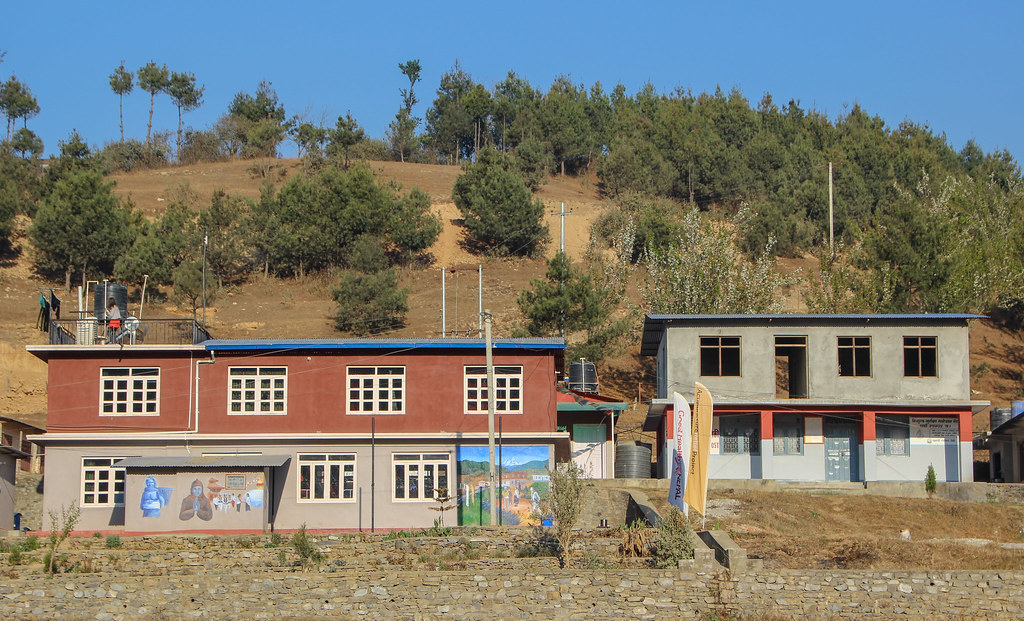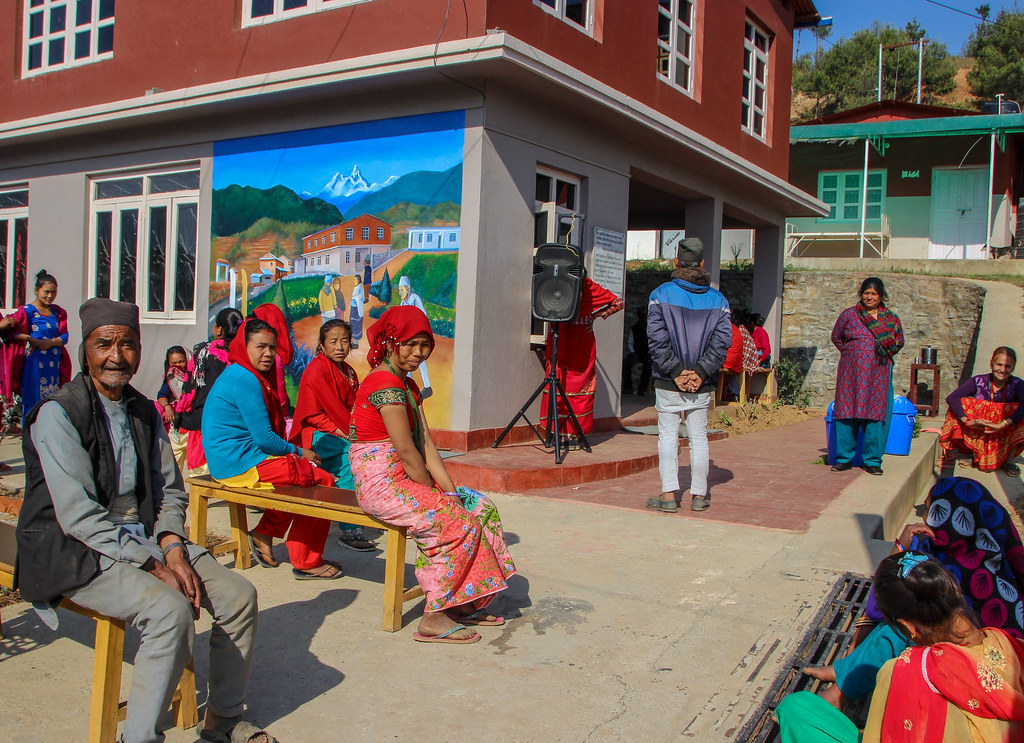Volunteering for Nepal’s Acupuncture Relief Project (ARP) was one of the most joyous and rewarding experiences of my life. In the spring of 2018, I lived in rural Nepal, about 3 hours from Kathmandu. After offering 585 acupuncture treatments in 2 months, I gained amazing perspective about this project. Furthermore, this starts off a series of 4 more articles about ARP and my life-changing experiences with this charitable organization.
What is Nepal’s Acupuncture Relief Project (ARP)?
The ARP Clinic is a unique setting, where compassion, health, and service interlace with the heart of humanity. It’s the place where volunteers give their time and hard work for no pay. Even more, they educate and provide healthcare services to a rural, Nepalese community. It also is a place where connection transcends language barriers, with body language, facial expressions and the all-encompassing message, “Namaste”: the divine and self is same in you and me.
ARP developed into being much more than an acupuncture clinic. Other health practitioners can volunteer, and Acupuncturists provide primary care services along with acupuncture. They are also responsible for taking blood pressure, vitals or blood sugar levels.
In addition, they refer to the western medical healthpost or even Kathmandu for conditions beyond their scope of medicine.
Read more about ARP!
American Acupuncturist Meets Nepali Patients, Part 1: Medical Interpreters & Hindu Customs
Life Changing Nepal Walking Tour in Agricultural Communities
American Acupuncturist Meets Nepali Patients, Part 2: Being Primary Care Practitioners
ARP’s 2400 square foot building comprises of the living quarters and kitchen upstairs, with the clinic, dispensary and classroom downstairs. By 8 am, many patients are lined up outside the clinic waiting to be checked in. They warmly greet us with their palms together and a slight bow, saying, “Namaste.” During my time with ARP, 4 acupuncturists paired up with their own medical interpreter to practice. Also, their areas consist of a curtained bed and 3 chairs, providing each with the capacity to treat 4 patients at once, up to 20-25 treatments/day.
Background of ARP
ARP began over 10 years ago by the Acupuncturist, Andrew Schlabach and other Oregon College of Oriental Medicine (OCOM) graduates. This project evolved into being more integrative, with opportunities for healthcare practitioners, such as, Acupuncturists, Naturopaths, Massage Therapists, Chiropractors, Physical Therapists and allopathic MD’s to volunteer their services. Most noteworthy, in 2015, ARP was invited by the district health office of Makawanpur to establish an integrated health care facility in Bajra Barahi. Also, the ARP site is next to a western medical healthpost and lab. Here, there’s a limited supply of free pharmaceuticals and tests for conditions, such as, HIV, hepatitis, typhoid, TB or malaria.
My main interest with ARP was to explore the concept of free healthcare in a third world setting. Nepal is rated as 12th poorest country in the world. Finally, in 2018 after performing 585 acupuncture treatments in 7 weeks, I got this rewarding opportunity. It’s my belief that everyone deserves free healthcare. I don’t intend to ignore this problem in my own country, the U.S. However, I like what is happening here. Because of the third world setting, this clinic is able to grow from a grass roots origin, with a relatively little amount of money to go a long way with less red tape.
ARP has come so far in just a decade!!!
ARP has made quantum leaps in just a decade. It’s now recognized through Nepal’s Ministry of Health, Social Welfare Council, and the district health office of Makawanpur. Furthermore, ARP partnered with rural health education to establish the first acupuncture school in Kathmandu. We had 2 compassionate Nepalese graduates volunteering at our clinic, always reminding me the spiritual gem of humility. Also, in 2018, ARP underwent a research study through Nepal Health Research Council, to help assess risk factors and prevalence non-communicable diseases in Nepal.
The grounds from which this project has taken flight truly amazes me. I love to write about it and promote the reality that all this is possible. It was an honor to be a part of ARP’s blueprint for free healthcare in a third world setting. Overall, this feels to me, like being part of the solution for a more sustainable and healthier planet! Even though the Covid crisis slowed down the clinic for a while, I have no doubt that the resilience from which this clinic began will provide a resurgence for an even brighter future.





